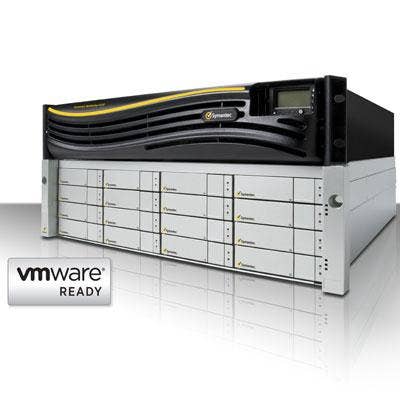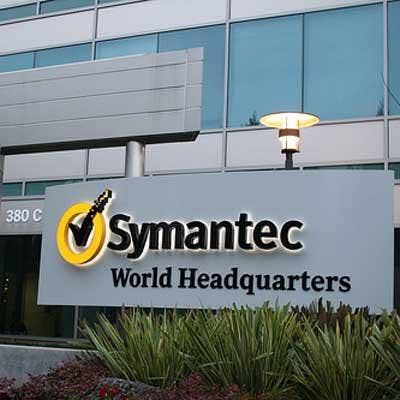10 Top Challenges For Symantec CEO Steve Bennett

Symantec Investing Heavily In Channel
Symantec is launching its global channel program next week in a bid to turn around its sinking license revenue, and once again fuel growth in its security software and backup and recovery business. The program will consist of many of the elements of its retooled U.S. go-to-market strategy. In recent months, the firm has invested heavily in large systems integrators, including Accuvant and FishNet Security, to bolster sales and get into more enterprise deployments. At the same time, CRN has learned that the company also is working closely with distributors, funneling marketing dollars and personnel to shore up its Norton security suite among small and midsize businesses. Industry analysts and longtime partners tell CRN that Symantec is facing some serious challenges ahead.
Here are the 10 top challenges that Symantec CEO Steve Bennett may have to address.

10. Symantec Economic Turnaround Not Expected Until 2016
Margin expansion and revenue acceleration have been pushed out, and fiscal year 2015 revenue growth looks unlikely, according to Michael Turits, managing director of equity research, infrastructure software, at Raymond James & Associates. In an analysis of the company’s recent third-quarter results, he said the company has had two quarters of substantial billings declines. License revenue dropped substantially, Turits said, falling 27 percent year-over-year.
Ric Hughes, CEO of Hunt Valley, Md.-based System Alliance, said Symantec’s market strategy overhaul has created temporarily ’disjointed’ sales teams that will continue to impact sales in the near-term. The investments made in large system integrators should eventually pay off, but the company needs to better communicate its strategy, he said.

9. Management Shakeup, Culture Change Takes Time
Symantec is focusing on boosting efficiencies and laid off at least 1,000 positions in 2013. The go-to-market strategy change disrupted 90 percent of the sales force, according to Bennett. He told financial analysts to expect 2014 to be another transition year for the company.
Improving efficiencies takes time, said Jason Livingston, CEO of Bloomington, Minn.-based Intuitive Technology Group. Livingston said there has been a ’getting to know you’ period once again with the field sales teams, but he remains optimistic that the company can turn it around. The sales teams are more proactively going after new clients and engaging knowledgeable solution providers early on in potential deals, Livingston said. Other solution providers are not as optimistic, saying that Symantec doesn’t have time in a hot market and needs to execute now.

8. Push Into Mobile
Symantec is betting heavily on mobile security and privacy products. Executives saw the need for enterprises to focus on the applications and data on mobile devices rather than the device itself. The company acquired Nukona in 2012 and has been integrating it with its Odyssey Software mobile device management acquisition.
The company unveiled Mobile App Center for mobile device and mobile application management. The Symantec Sealed program gives iOS and Android app developers a way to support policy controls, such as encryption or VPN requirements around specific mobile apps. The company faces competition from a crowded mobile security market, say solution providers who have been watching the market consolidate. IBM acquired Fiberlink, a SaaS based MDM vendor. VMware, meanwhile, made a move, buying market leader AirWatch for $1.5 billion.

7. NetBackup Disruption
Symantec entered the backup and recovery market with its acquisition of Veritas software for $13.5 billion in 2004. The company has maintained its market leadership position, but customer support has taken a hit, say some solution providers. The market also has changed considerably over the last decade with a number of strong traditional competitors including CommVault, Dell, EMC and Veeam, and more storage options from Microsoft Azure and Amazon Web Services.
The company is looking for a turnaround by adding support for large-scale VMware environments. NetBackup 7.6, unveiled by Symantec last month, has new management features and improvements to speed. Symantec claims a 400 times faster recovery of VMware vSphere virtual machines. Industry analysts are positive about the much-needed update.

6. Norton Antivirus Decline
Industry analysts tell CRN that although Symantec’s Norton suite is a powerful brand, it may be getting undercut by other firms, including AVG, Avast, Trend Micro, Kaspersky Lab and others who are leveraging the channel to sell more robust business suites with remote management functionality. In addition, other firms, including Trend Micro and Kaspersky Lab, are making gains. Symantec's third-quarter 2014 results showed evidence of the company's decline in the market. The company reported a 4 percent decline in revenue from its protection business, which consists of its Norton line, its data loss prevention suite and other endpoint products. "There are many strong competitors in endpoint security at this point," said Todd O’Bert, president and CEO of Minneapolis-based Productive Corp., a security, storage and infrastructure reseller that has seen growth in its partnership with Kaspersky Lab. "It’s very hard to differentiate the product."

5. Focus On Partner 'Specialists'
Symantec is incentivizing its sales force with as much as a 10 percent margin uplift to work with technically skilled partners that can carry out larger implementation projects. This is good news to some partners who say they compete head-on with traditional resellers who get certified on products, but ultimately sell endpoint security in large volumes. Partners say the channel reboot seems to come every two years or so.
"Symantec is starting to realize the difference between a reseller and someone who has the ability to sell solutions around their products," said Alex Moss, managing partner at Chicago-based consultancy Conventus, a Symantec partner.

4. Slow O3 Cloud Adoption
Symantec introduced an O3 cloud authentication gateway in 2012, but hasn't seen huge adoption from its customer base, according to industry analysts. The goal is to give businesses single-sign-on capabilities to the cloud-based services their employees are authorized to use. A lot of vendors are coming to the table with lower cost and, in some cases, more robust alternatives, Symantec partners tell CRN. The cloud application control gateway now competes with an emerging group of vendors that specializes in authentication, encryption and file integrity monitoring. The cloud security gateway technology is also more of a self-services model, making selling it a tricky issue, some partners told CRN. The cloud application control gateway market has gotten crowded and some analysts believe it could get a shakeout over the next year or two with some firms going out of business and others being acquired by larger vendors.

3. Partnerships Brewing With Networking Vendors
Symantec lacks a portfolio of strong networking products, say some channel partners, who insist that the lack of networking gear makes selling a more holistic portfolio a difficult proposition. Partners that sell Symantec Endpoint Protection software, Backup Exec or NetBackup often partner with networking players. Palo Alto Networks, Sourcefire and others are key vendors with which Symantec executives may be looking to strike integration partnerships.
Other partners are finding success selling FireEye network security appliances. FireEye recently acquired Mandiant, a firm that in addition to incident response consulting, also has an endpoint security platform.

2. Integration Is Difficult
Symantec’s Bennett is overseeing a complete overhaul of the company’s product portfolio with the goal of tightly integrating the point products into a more unified set of solutions that partners can sell into clients. Rather than simply selling NetBackup and endpoint security, the firm wants technical service providers to sell a broader amount of its portfolio, such as data backup, mobile and cloud security, data loss prevention and IT management platforms.
Partners tell CRN that they want to see more details and are waiting on a product road map, which Bennett said would be more completely unveiled at Symantec Vision user conference in November. The company also falls behind chief competitor McAfee (now Intel Security) when it comes to its technology partner ecosystem, partners say.

1. Big Reliance On Large Systems Integrators
Symantec is betting heavily on a go-to-market strategy in the U.S. to get the largest systems integrators to sell more of its products in the enterprise space. The company is funneling millions of dollars into FishNet, Accuvant and others to get a seat at the table at enterprises. The funding is for sales and technical head count, demo centers and lead-generation activities. The problem, according to some Symantec partners, is that large systems integrators have a large portfolio and wouldn't hesitate to sell competitor security software to clients.
CRN also has learned that the company is betting big on distributors, doubling down on its distribution strategy with large investments in Tech Data and others for sales and technical head count and marketing dollars. The move is to bolster sales of its Norton endpoint security line among small and midsize businesses.